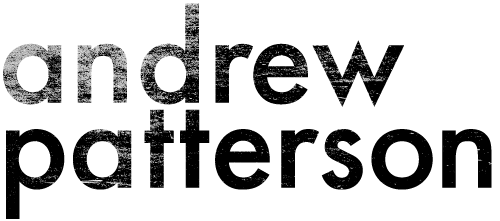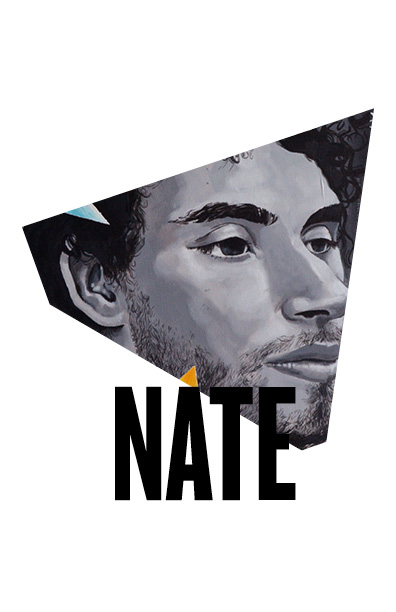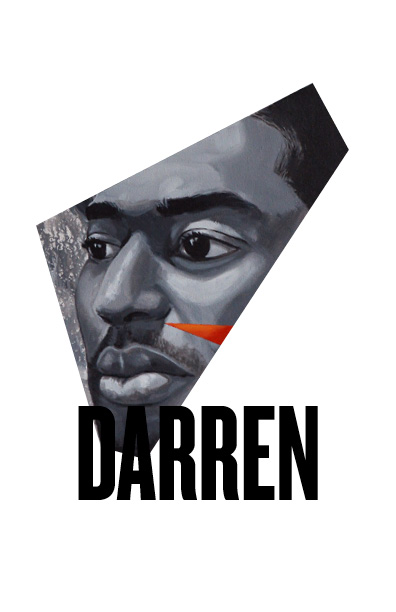A conversation with Dana from my upcoming zine Mixed Blood Manifesto.
Andrew: I’d rather not influence your responses, but to give you an idea of where it’s coming from; I’ve always identified as neither black or white, and that has served me well my whole life until recently – as people become more and more concerned with things like identity (gender, ethno-cultural) it’s become increasingly uncomfortable to not care about those things. So for me, the idea of heritage and things like ‘racial identity’ are increasingly exclusive and problematic.
If any of this makes you feel any type of way, let me know! haha
Dana: That sounds fine.
I guess to give you background on myself, I’m more or less half white and black, but grew up in Hawai’i. It’s common there that people are from different racial backgrounds, so identifying as one particular race never really crossed my mind growing up. Even now, I still wouldn’t identify myself as one race over the other. However, culturally, I would say I identify more with the Hawaiian one.
A: Interesting!
One of the other subjects, my friend Kohji, has a connection to Hawai’i as well. How would you describe Hawaiian culture? Is it like rooted in values and a ‘way of being’ or is it more tied to the indigenous history on the islands?
Or at least what does it mean to you, I guess.
Dana: Depending on what you mean by Hawaiian culture. Just to make a distinction, I’ll say that there is the traditional Hawaiian culture based on the native Hawaiian culture, and the modern day Hawaiian culture which does include some elements of the native Hawaiian culture.
I identify with the modern-day Hawaiian culture.
The modern-day culture is a bit hard to characterize because it’s a bit of a hodgepodge of other cultures as well. For example, there is a commonly spoken dialect there called ‘pidgin’ which is essentially broken english.
A: True, like patois…
Dana: However, there are Hawaiian words that will be used when speaking that. Sometimes words that are Portuguese, Chinese or Japanese are used too.
A: I see – the reason I ask is that I’ve always been very drawn to sub-cultures as opposed to culture in the traditional sense; punk, hip hop culture, various circles in the arts, skating, comics and gaming. Things that at their core, as a generalization, are defined by shared passions, values, and ideals, rather than racial, ethnic, or even gender based lines.
Dana: Here, this article1 (See end of interview for links) may explain the diversity a bit better…
A: Sounds right up my alley. I would’ve been taking advantage of the recent flight deal if I hadn’t weeks before taken advantage of one to Japan. My business partner is going to Hawai’i instead haha.
Dana: You should have gone there instead!
A: haha well, I love Japan…with a passion that borders on unhealthy.
Dana: I guess the closest parallel can make to Hawaiian culture is Cuban culture.
Everyone in Cuba is mixed, but it doesn’t matter. You are perceived as family because you are from there. As a result, you will go out of your way to help someone you don’t know – it’s a tight-knit community.
Kind of similar to Cuba too, (in Hawai’i) there is some divide between locals and tourists. Not as much as Cuba, but it is there.
A: True.
It’s very interesting. We have this great opportunity here, in one of the youngest formally recognized or confederated countries with a booming immigrant population, to embrace a lot of those qualities – but the rise of populism is really getting in the way.
At least, that’s how I feel. It’s very frustrating for me to see how this wave that’s hit the US, Canada, the UK, and many other countries push people so far to either end of the spectrum, as far as identity is concerned.
Do you feel like Toronto has changed at all recently, in terms of how people emphasize identity?
Dana: I don’t think that Toronto has changed recently, in how people emphasize identity. However, I am probably the worst person to ask because 1) I am currently in school and a lot of people in my program are not from Canada, and 2) before I started attending school, I was a nanny for like 5 years. I have been in an insulated bubble.
It takes a lot of time to get to the point of embracing parts of other cultures. I think it worked for Hawai’i because it’s relatively isolated.
Plus, people are always going to find something to focus on that separates their group from others. Whether it’s white vs blacks, tourists vs locals, jews vs non-jews, people will find something…
Kind of like this2.
A: Perfect reference. I agree.
I guess for me, I’ve always made an effort to stay socially connected to a variety of groups, like many of the afore-mentioned ones – involving myself in Student Union in College, that type of thing. Basically in an effort to ensure I didn’t get trapped in an echo chamber.
I feel like the rise of people like Ford and Trump has created this equal/opposite reaction, where people champion their identity from a well-intentioned place, but it’s just resulting in an even more fractured, polarized social climate.
An example that comes to mind is say, a few years ago, when Black Lives Matter TO staged a sit in protesting uniformed officers at the Pride parade. To me, you’ve got all these historically and presently marginalized groups who should be allies in spite of the issues they don’t agree on, but instead, you’ve got this increased emphasis on individual groups splintering apart.
Dana: That’s so true.
A: Mmhm. I mean, it’s sort of the impetus for this body of work, to express the discomfort I feel with this direction. You’ve got all these brilliant, progressive, diverse, talented people who are regressing to the exact same type of behaviour you’d traditionally see in socially conservative circles – the same type of ‘othering’.
Whereas even say, like as late as like 2015, there was (I felt) more of an eye to integration and cultural exchange. Now the conversation revolves heavily around things like appropriation, ethnic cultural ownership, things like that.
Dana: As a result though, there is kind of a weird phenomenon going on as well: “Identity Politics Are Leading To Racially Segregated Dorms And Parties”3
Segregated dorms emerging across the country keep people in their cultural comfort zones… The result is deeply divided higher education.
Not the best source, but a good overview of what is happening.
A: Oh yeah, exactly. Crazy.
Dana: I feel like it’s more bound to happen when people feel threatened. For example, when people may feel threatened that their jobs will be taken away by immigrants etc.
A: 100%.
It’s just a shame that now it’s so
evidently happening on both sides
of the table.
It’s like…self-imposed othering, in order to feel some sort of control over your environment.
Even though I believe it’s a natural process, I just wish it we could shift it to ideals less rooted in the circumstance of how we’re born. Let it be something that we can choose,
you know?
 I think that’s one of the things that makes so many art forms so beautiful. Those things may inform them, but they’re not necessarily ruled by them.
I think that’s one of the things that makes so many art forms so beautiful. Those things may inform them, but they’re not necessarily ruled by them.
Dana: I think a lot of it comes from good intentions, but quite a few people push the being pc thing to the extreme. Like some people will be offended on behalf of race if that makes sense? I can’t find the right words, but kind of like this situation…
With that much emphasis on being politically correct, I can see how a person may be hesitant in having a dialogue with another person about their culture or background. It would probably be harder to do in a group setting. A person may misstep and ask something that is perceived to be insensitive by the group, however, the person receiving the question may not be offended at all.
A: Totally.
Dana: Also, to add to that, that kind of environment makes it hard to integrate different cultures. For instance, a person may genuinely love to wear djellabas and dashikis because they think they look really cool and are comfortable. They may get flack, not from the culture that these items originate from, but from people within their own culture saying that it’s not appropriate.
A: Yeah. Wild times…some good food for thought here though! Thanks for taking the time to chat!
1https://www.hawaiimagazine.com/content/15-hawaiis-multiethnic-foods-translated-and-explained
2https://www.youtube.com/watch?v=oIcsk2ZoaTY
3https://thefederalist.com/2018/08/31/campus-identity-politics-leading-racially-self-segregated-dorms-parties/




